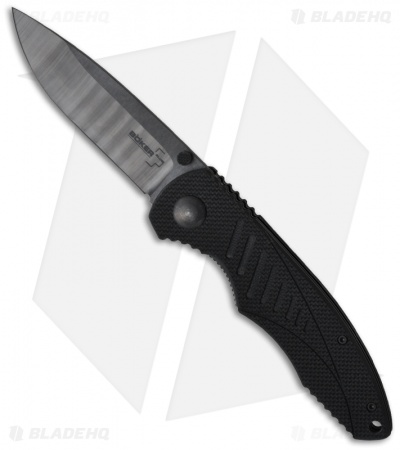 It can be difficult to choose whether or not a ceramic knife is right for you. There are many things to consider when purchasing a ceramic knife; whether your main goal is to get an efficient, always sharp, lightweight pocket knife, or getting the ultimate long lasting kitchen knife. It’s very easy to get enthusiastic over a great ceramic knife, but you must also be aware of the disadvantages of owning such a knife.
It can be difficult to choose whether or not a ceramic knife is right for you. There are many things to consider when purchasing a ceramic knife; whether your main goal is to get an efficient, always sharp, lightweight pocket knife, or getting the ultimate long lasting kitchen knife. It’s very easy to get enthusiastic over a great ceramic knife, but you must also be aware of the disadvantages of owning such a knife.
Why Would You Want One?
There are basically two main purposes for a ceramic knife. One is a lightweight, every day carry pocket knife that is used mostly for simple tasks. Ceramic blades are non-magnetic, and extremely sharp, so there might be certain types of people who can take advantage of a ceramic EDC. The second is for every day use in the kitchen. Ceramic kitchen knives are extra sharp, and don’t need to be sharpened as often because they hold their edge extremely well.
The Downsides
Most all ceramic knives are made from a compound called zirconium oxide. No need to review your chemistry notes; this material is one of the hardest material compounds in the world and could be considered second to diamonds. Similar to diamonds, ceramic blades can be sharpened razor sharp and last a long time. However, being the hardest knife doesn’t mean toughest. Ceramic blades are fragile, brittle, and easily breakable or chipped if not used properly. They don’t bend like metal knives. Ceramic knives are not good for cutting hard things like chopping bone, or frozen food, and other ceramic or glass materials. If you decide that a ceramic blade is right for you, then you will have to be careful what you use your ceramic knife on.
Another downside is that ceramic knives can be more expensive when compared to metal knives. That is because you are paying for one of the sharpest knives you can get with little to no maintenance.
The Benefits
You can find great quality ceramic knives that for the cost can retain a sharp edge for an impressive amount of time. Many owners claim that these knives will stay sharp 10 to 15 times longer than their steel counterparts. Considering the overall life of the blade and cost, an owner can justify replacing a ceramic knife at cost rather than shipping it to get sharpened.
Ceramic blades are very light, so many do not need that much compensation in material to balance the knife. That leaves durability and grip to be the focus of the handle.
Ceramic blades are also very hygienic. They are extremely safe and clean to use the blade on fish then meat since the material used is so dense that it does not have pores to carry odor or bacteria.
The best part about ceramic blades is that because they are not metal, they are 100 percent rust free.
When purchasing a ceramic knife, in fact almost any knife, there are several things I like to consider. One blog post that I came across that I feel organized all my thoughts and worded it simply and clearly was on the site for “Ceramic Knife Reviews.”
The link is:
http://www.ceramicknifereviews.com/8-tips-you-must-know-before-buying-a-ceramic-knife/
Ceramic knives are one product where it is not as necessary to purchase the highest priced model to receive a high performance knife. The purpose and use I feel is limited, but if the shoe fits, it will be a great shoe that you can put a lot of miles on.
